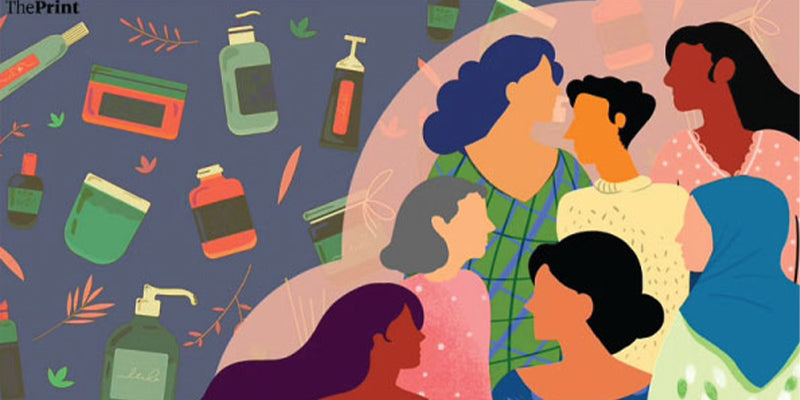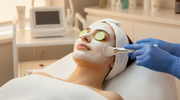Instagram skincare is a rabbit hole and a booming industry of bogus claims

New Delhi: If the promise of clear skin and eternal youth is the bait, then social media is the hook that lures millions to experiment with skincare. Instagram is a gallery of beautifully packaged jars, bottles, and tubes of skincare ‘essentials’ — serums, exfoliators, night creams, day creams, toners, moisturisers, face masks, pore minimisers, cleansers, oils and what not. It may just have mud from the Amazon, minerals from the Himalayas and seaweed from the depths of the Atlantic.
These products promise everything short of eternal youth, and who is holding them accountable? The lack of regulation and transparency in the skincare industry, exacerbated by the growth of ‘skincare solutions’ on social media, may have ruined more skins than they might have rescued.
Prisha Raja, a psychology student from Flame University, Pune, fell down this very rabbit hole. Her entry into the world of skincare started with mild interest, but online searches, propelled by Google AdSense and Instagram algorithms, made her dive deeper into it. A month later, she ended up at a dermatologist’s office with a case of dermatitis.
How often have consumers added product after product to their carts, only to realise that they’ve spent a sizeable fraction of their money at a nicely designed e-store? Starting with a casual ‘like’ on an influencer’s post, automated ads conveniently lead them to check out the page, and thereon go on an impulsive shopping spree. And the cost of this spree does not just end with the bill. It can result in a plethora of skin care problems you didn’t even think you could have.
The small army of social media influencers and so-called skincare ‘experts’ testing products and doling out advice adds to the problem.
Bogus claims
With over 98,000 followers on Instagram, Dr Jushya Bhatia, a dermatologist at Sarin Skin Solutions, is sought after by beauty brands in the market looking for endorsements or collaborations. But Dr Bhatia is wary of the products she comes across, and said, “We have to be extremely selective. Just last week, a brand asked me to promote its sunscreen that had certain ingredients I knew were not good sunscreen filters. I asked the brand if it had conducted any studies or any evidence. The representatives never got back to me.”
The story didn’t end there. Recently, when Dr Bhatia was at the Hyderabad airport, she spotted the same sunscreen on the shelves of a store.
What’s worrying some doctors is that a lot of skincare brands have launched websites with consultation services. “The problem is that consultation is conducted by influencers or enthusiasts rather than actual dermatologists. A lot of non-doctors on social media promote medical drugs that can lead to severe consequences,” says Dr Ankur Sarin from Sarin Skin Solutions.
This is especially dangerous in the Indian market, where there is no adequate regulation of Schedule H drugs that require a prescription. “We once had a patient who had to abort their child because they were consuming oral retinoids. The couple was unaware that oral retinoids should be avoided during pregnancy. They had purchased it without a prescription,” said Dr Sarin.
It took a particularly nasty skin breakout for Anmol, a software engineer in Hyderabad, to understand the pitfalls of taking advice from influencers. When he started noticing a few pimples, he hopped on to YouTube to find a solution. He purchased the same products that had worked for an influencer, but, unfortunately, they made his skin break out even more.
The fact is, there is no single universal solution for skin problems — there are as many diagnoses as there are patients.
“We have received patients who had consulted skincare influencers before. One needs to note the difference. Influencers are not experts. Some of them are also driven by commission from other brands,” said Dr Jushya.


